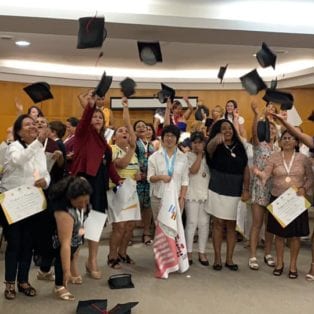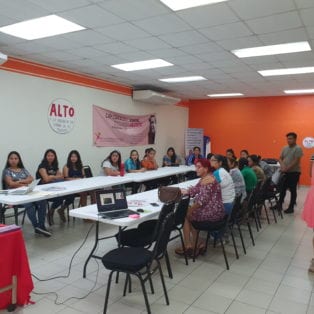As long-time union activists helping domestic workers form unions and get a voice on the job, Andrea Del Carmen Morales Pérez and Librada Maciel found themselves fighting burnout—from stress, from nonstop work and from unrecognized trauma they carried with them for...
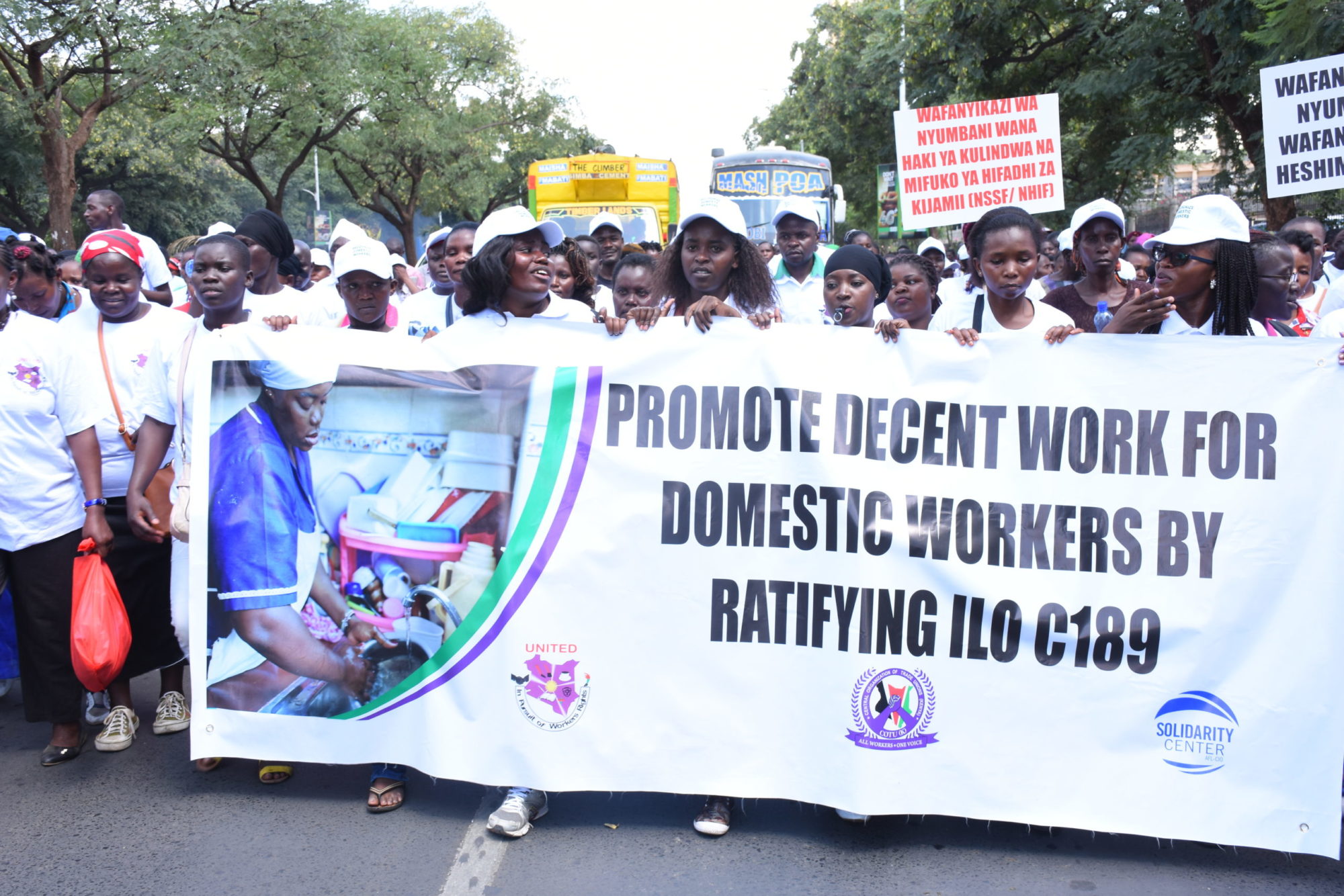
The Solidarity Center joins with unions in Kenya and around the world in championing ratification of the ILO global treaty Convention 189 covering domestic worker rights. Credit: KUDHEIHA
Millions of domestic workers are employed in countries where they are excluded from national labor laws, including limits to working hours, minimum wage and overtime pay. Domestic workers, who are predominantly women and sometimes children, toil invisibly in private homes. Some live on their employer’s premises where, away from the public eye, they often are subject to abuse. Nearly one in five domestic workers are international migrants.
The Solidarity Center supports unions around the world as they assist domestic workers in gaining their rights on the job such as in Honduras and Ukraine, where workers formed the first domestic workers union in their countries with the assistance of Solidarity Center partners.
Together with the International Domestic Workers Federation (IDWF) and the U.S.-based National Domestic Workers Alliance, the Solidarity Center supports leadership, gender equality and rights-based training for domestic workers to strengthen their ability to advocate for improved wages and working conditions.
Many domestic workers migrate for jobs to the Gulf countries and the Middle East, and the Solidarity Center works to advance their rights with union partners in origin and destination countries, such as the Kuwait Trade Union Federation (KTUF), which launched a migrant worker office that assists domestic workers and other migrant workers experiencing wage theft and other forms of exploitation.
The Solidarity Center, which joined with unions and rights organizations in championing passage of the 2011 International Labor Organization’s global treaty (Convention 189) covering domestic worker rights, assists unions in pushing for adoption of the treaty in their countries to ensure domestic work is legally recognized and valued. The Solidarity Center also supports domestic worker unions achieve labor rights in countries such as Mexico, where union partners won the right to written contracts and a ban on employing workers younger than age 15.
Honduran Domestic Workers Join Newly Formed Union
Domestic workers in Honduras increasingly are exercising their rights on the job in the country, where they have few labor law protections and so are especially vulnerable to abuse. More than 100 workers recently joined SINTRAHO (Sindicato Nacional de Trabajadoras del...
Colombia Marches Against Measures that Hurt Workers, Youth and Pensioners
Tens of thousands of Colombians have taken to the streets across the country today, simmering with anger over the government’s moves to cut wages and pensions, restrict the right to protest, hike energy prices and reward corporations with tax cuts, among other...
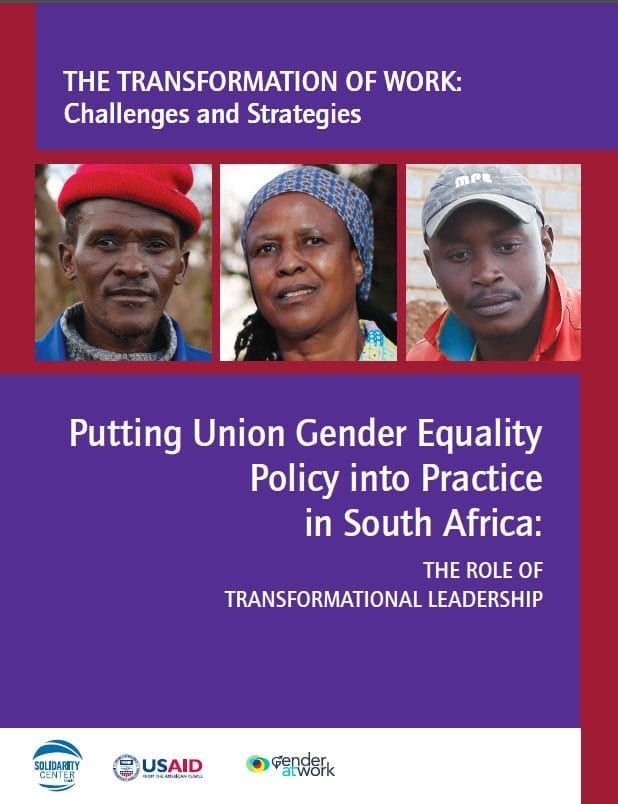
Putting Union Gender Equality Policy into Practice in South Africa
Unions are key drivers advancing gender equality. Yet in many countries around the world, there is a disconnect between labor union policy and practice in transforming gender inequalities within trade unions. Through the lens of the South African union movement, this...
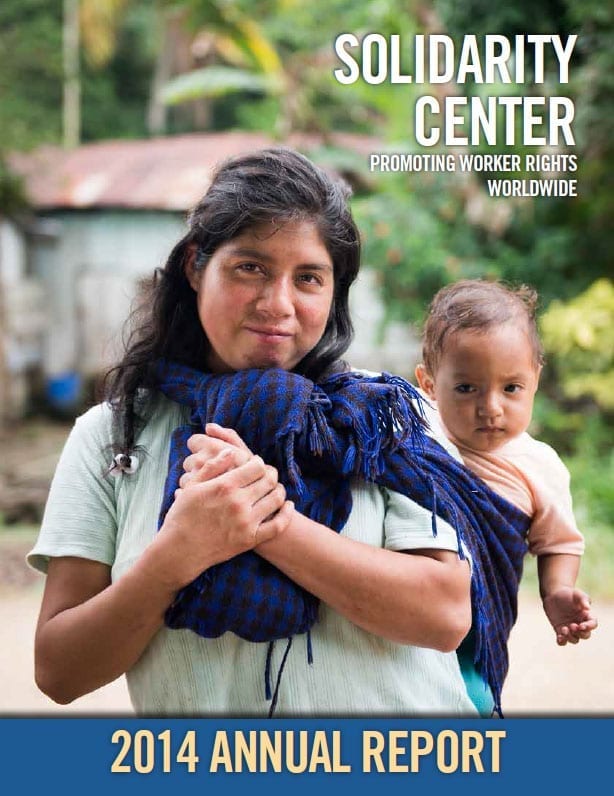
Annual Report 2014
Download here.
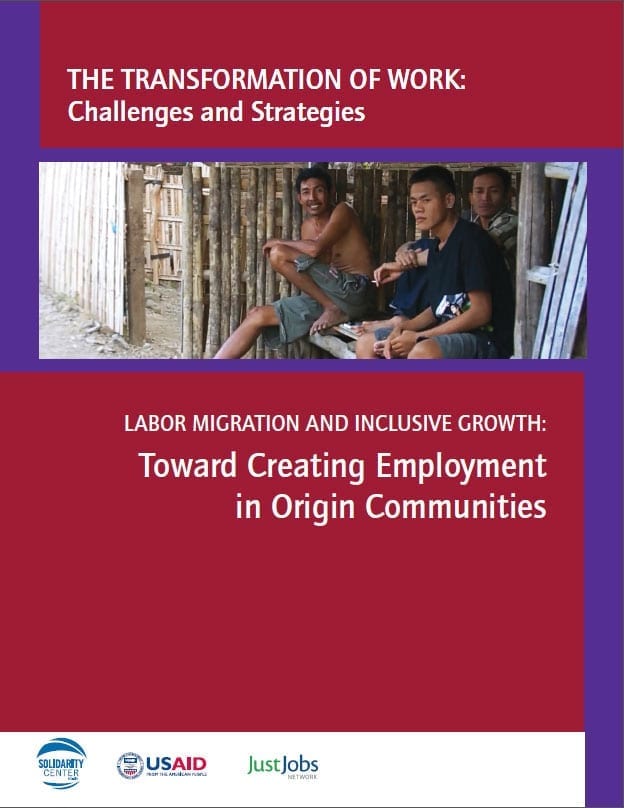
Labor Migration and Inclusive Growth: Toward Creating Employment in Origin Communities (2015)
This paper investigates the intersection of labor migration and the inclusive growth agenda, and seeks to recommend policies so governments of origin countries can, in part, expand labor migration’s positive impacts by making migrant workers agents in promoting and...
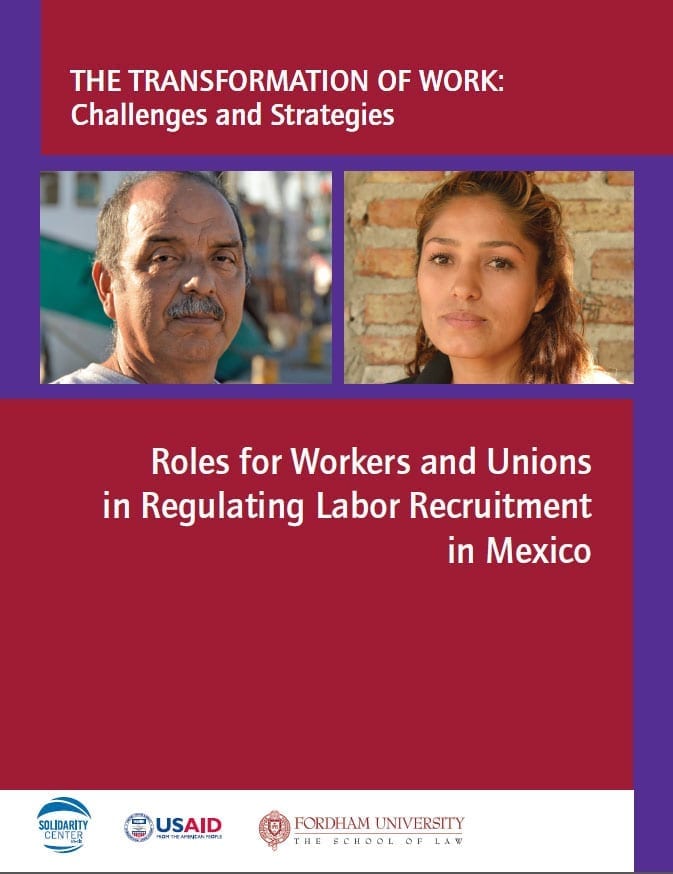
Roles for Workers and Unions in Regulating Labor Recruitment in Mexico (2015)
Fordham University law professor Jennifer Gordon examines the roles of guest workers as organizers, monitors and policy-setters in supply chain initiatives and other efforts to address labor recruitment violations. Download here.
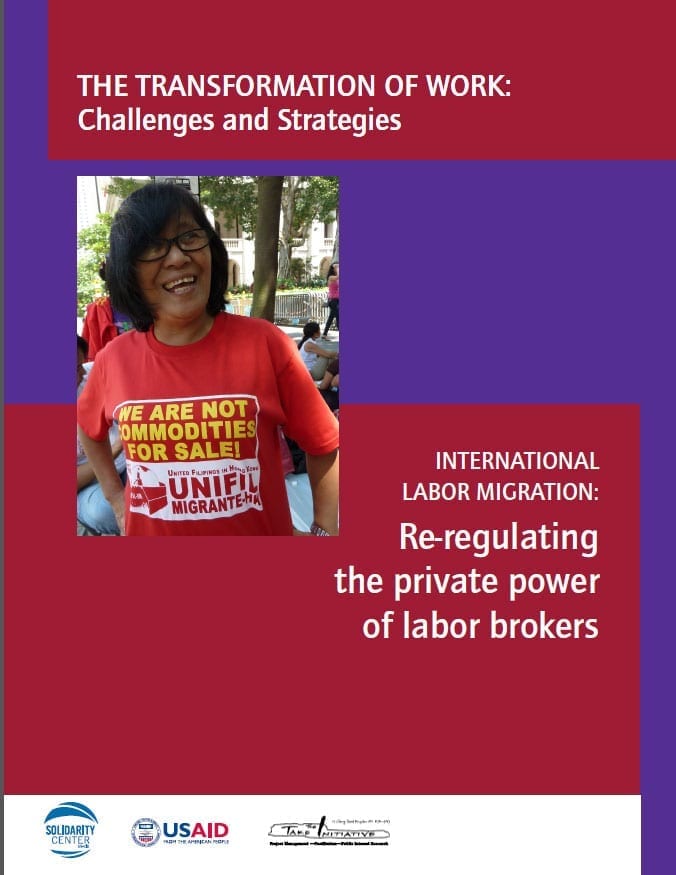
International Labor Migration: Re-regulating the Private Power of Labor Brokers (2015)
In this review of initiatives to regulate labor brokers, the authors find that state and civil society efforts to address migrant worker exploitation point to potential new policies, most effectively led by state-backed regulatory frameworks. Download here.
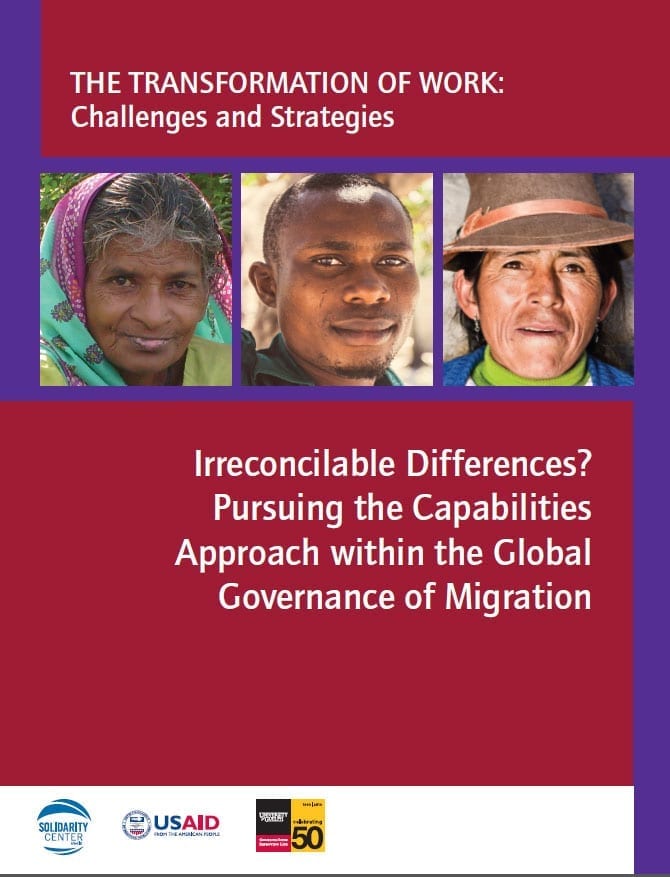
Irreconciliable Differences? Pursuing the Capabilities Approach within the Global Governance of Migration (2014)
This report on global labor migration challenges the current “triple win” paradigm in global migration policy through a worker rights lens, and argues that when applying the now-accepted "capabilities" approach, the international development community must focus on...

